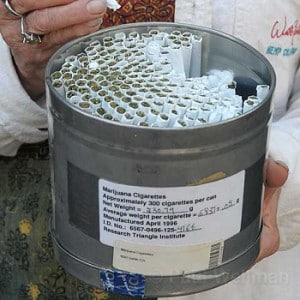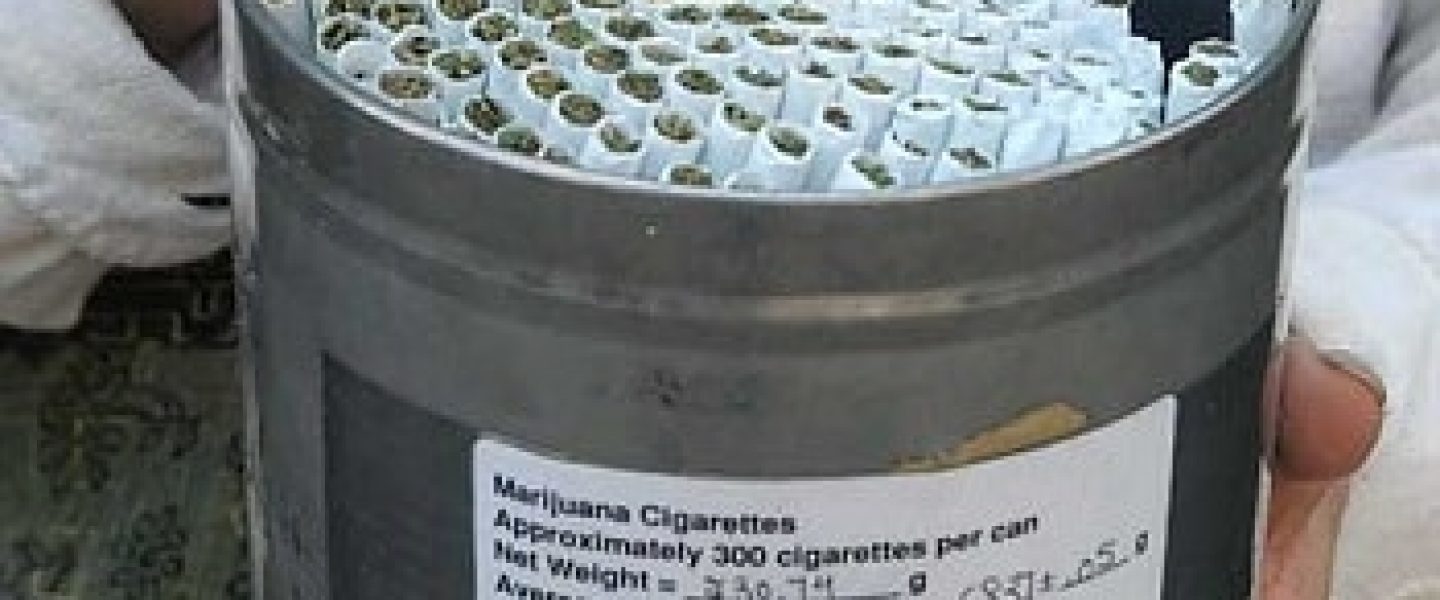 Federal Appeals Court Hears Case On Medical Value Of Marijuana
Federal Appeals Court Hears Case On Medical Value Of Marijuana
By Jonathan Bair, Americans for Safe Access
This morning, the federal Appeals Court for the DC Circuit heard an appeal in the case called Americans for Safe Access v Drug Enforcement Administration. The case is an appeal of the DEA’s rejection of a petition filed in 2002 seeking to change the placement of marijuana as a Schedule I drug per the Controlled Substances Act. Based on the scientific evidence, ASA and our fellow plaintiffs feel that it is simply untrue that cannabis is a drug with a “high potential for abuse” and “without accepted medical use in treatment in the United States.” The hearing today offered a glimpse at the Court’s approach to this topic.
In front of a packed courtroom in Washington, the three-judge panel questioned ASA’s Chief Counsel Joe Elford and a federal lawyer about the merits of the scientific case, and the crucial legal issue of “standing.” Standing is a legal concept that restricts the right to sue to injured parties – people who are directly hurt by what they are fighting, and can get relief from a legal judgement. The issue of standing has been the reason why two prior appeals of the DEA’s classification of marijuana were rejected. In the past, patients have not been part of lawsuits against the Controlled Substances Act. The three judges were Merrick Garland, Karen Henderson, and Harry Edwards.
ASA’s Chief Counsel Joe Elford opened his appeal by arguing that the federal “Department of Health and Human Services plays a game of gotcha” by tightly controlling research access to cannabis and then claiming that there is not enough compelling research to justify reconsidering it as Schedule I. The Drug Enforcement Administration erred by determing that cannabis has a high potential for abuse when its findings determine its abuse and harm potential is less than other substances in less-controlled schedules, such as cocaine.
Elford opened his arguments with the issue of standing. He pointed to the affidavit of plaintiff Michael Krawitz, a veteran denied access to Veterans Administration services because of his medically necessary use of marijuana. The Veterans Administrastion’s harmful policy is based on marijuana’s status as a Schedule I substance. He also spoke of the many members of Americans for Safe Access, who are fearful of the consequences of cultivating their own cannabis for their medical needs, and that a medical necessity defense in court could be allowed if marijuana were not in Schedule I.
Elford then turned to the issue of the merits of the DEA’s position on marijuana’s medical value, to prove their position was “arbitrary and capricious” and therefore impermissible. The contention that there is not a complete consensus was argued to be an unreasonable interpretation of the regulatory standard, and that many of HHS’s standards are inapplicable to an organic substance. Significantly, the lack of access to marijuana for medical research is a consequence of the scheduling, yet the lack of suitable research is cited by the DEA as a reason for maintaining the schedule. Despite this lack of research access, ASA cited a growing body of high-quality scientific and medical research into the benefits of marijuana.
Judge Garland asked Elford if he was arguing that marijuana in fact meets HHS’s standard for studies. ASA’s counsel cited over 200 studies and argued that a circular standard is impossible to meet. He also said that, given that the schedule is relative, the DEA is ignoring even its own studies showing that marijuana has merely a “mild” potential for abuse.
Joe Elford concluded by arguing that Schedule I was an inappropriate classification of marijuana and it caused harm to patients and prevented meaningful medical research. Rescheduling marijuana would allow for a reasonable policy solution for suffering patients and uphold the intent of the Controlled Substances Act.
Judge Edwards asked about the standing of Mr. Krawitz, and his access to medical marijuana. The judges asked about access in medical states and noted that marijuana would not be legal just because it were rescheduled.
Federal counsel Lena Watkins then presented her position against appealing the DEA’s decision to continue cannabis in Schedule I. She noted that state legislatures or popular votes do not determine accepted medical use. She said that research is inadequate and has not progressed, and argued that the government does provide access for research. Turning to the abuse potential, Watkins said, “marijuana is the most widely abused drug in America,” and dependency is a factor in making that assessment.
The judges questioned the level of access provided for research, and Watkins said that fifteen studies of a specific federal “quality” metric have been allowed. Pressed to explain why these studies haven’t persuaded the DEA that marijuana has medical benefits, she said, “we don’t have the final results yet.” To many in the audience, the circular nature of the government’s position on the science of marijuana was clear. The judges then invited Elford to give a rebuttal.
Focusing on rebutting the government’s claims about research, Elford argued that there has been adequate study and even more since this case was filed in 2002, and noted that he would like to admit additional evidence to the case. Summarizing by turning the government’s “no substantial evidence” argument on its head, Elford said that both sides agree more research needs to be done and that research can only happen if marijuana is released from Schedule I. Requiring the DEA to make scientific determinations on a new schedule would lead to better policy and more relief for suffering patients.
The patients spoke out at a well-attended press conference after the hearing, and Americans for Safe Access is proud to have given patients a day in court. Many observers felt the judges were willing to consider the argument of Michael Krawitz’s direct harm from the Controlled Substances Act, and this issue of “standing” has been the Achilles heel of past lawsuits against Schedule I. However, Judge Garland asked at one point, “Don’t we have to defer to the agency? We’re not scientists. They are.”
We’ll find out whether the judges felt the DEA’s science is adequate, or if patients can sue for a medical necessity defense against harsh marijuana laws, when the judges rule. We don’t expect it for a few months. This opportunity is thanks to the brave plaintiffs who took on the federal government on behalf of many others.
Jonathan Bair is ASA’s Social Media Director. Recordings of any kind were not allowed in the courtroom.
Source: Americans for Safe Access



























